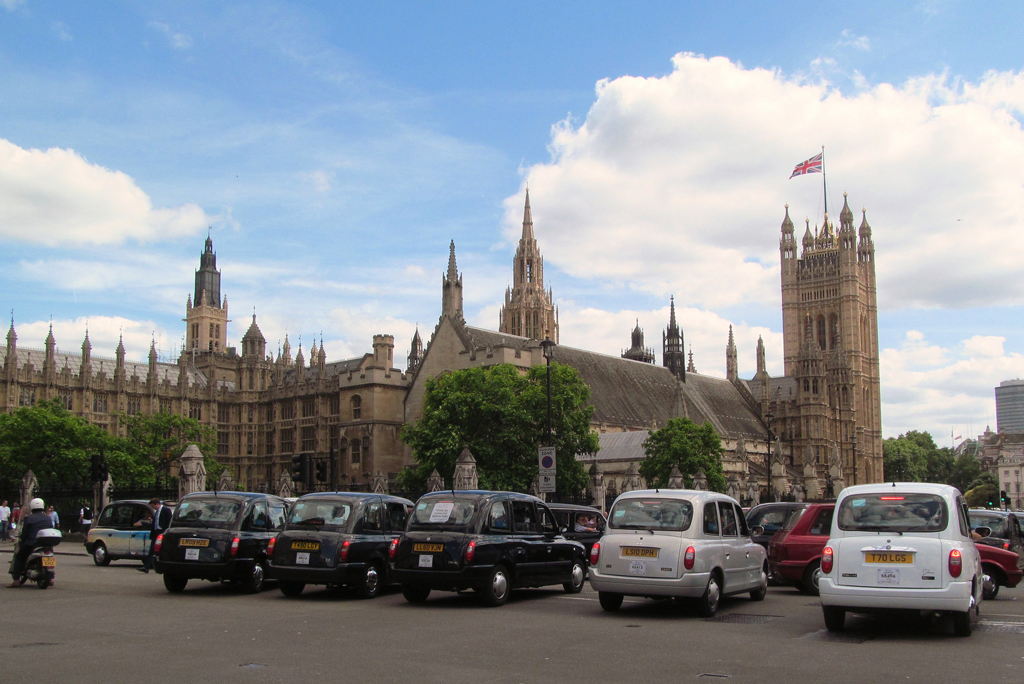Uber, Deleted

Anti-Uber protest in London, 2014. Photograph by David Holt.
From The New York Review of Books:
For about three months this year, I drove an Uber taxi in London (as research for a book about the company). My entry into this world of casual employment was greeted by reams of pseudo-emancipatory rhetoric about my “autonomy,” “being my own boss,” and how I would be turning my car into a “money machine.”
Of course, the Uber driver soon discovers just how flimsy are the foundations on which these euphemisms rest. During my “onboarding” session, a brief classroom training for new drivers, an Uber employee informed me that as a driver I could not “pick and choose” which jobs I accepted. At the end of a typical week, I took home only a little more than the minimum wage of £7.50 an hour, and that was before deducting the inevitable expenses or loss of earnings that would result from illness or time off. I also learned that Uber would closely monitor my customer satisfaction rating. If it went too low, Uber would temporarily ban me from using the app.
None of these conditions would be particularly unusual in regular salaried employment. But Uber purports to simply facilitate the rider’s relationship with the taxi driver who provides the transportation. As our onboarding instructor put it, “Uber is a technology app, it’s not a private-hire company.” This is how the company attempts to distinguish itself from the private-hire companies whose so-called minicabs make up more than 75 percent of licensed taxis in London. But all taxis and taxi operators that are not black cabs—which are subject to more stringent licensing and regulation—need a private-hire operator’s license to work in London, including Uber. And Uber had one, until September 22.
…
The story of Uber in London was, in one telling, a story of bootstrapping entrepreneurship by some of the most marginalized workers in one of the wealthiest cities in the world. “They [are] immigrants,” Aman, an Uber driver originally from Eritrea, told me. “They were exploited before, as well, in their other jobs.” But many of his friends drove for the company, he said, because they “don’t really have any options.” The window of opportunity Uber provided may now be closed for good. If anything has undone Uber, it is the hubris of its claim to be a vehicle for freedom and prosperity—when, in fact, it only made more visible the precariousness of casual employment in Britain’s poorly regulated labor market. For that, it has been punished.
“How Uber Stalled in London”, James Bloodworth, The New York Review of Books








